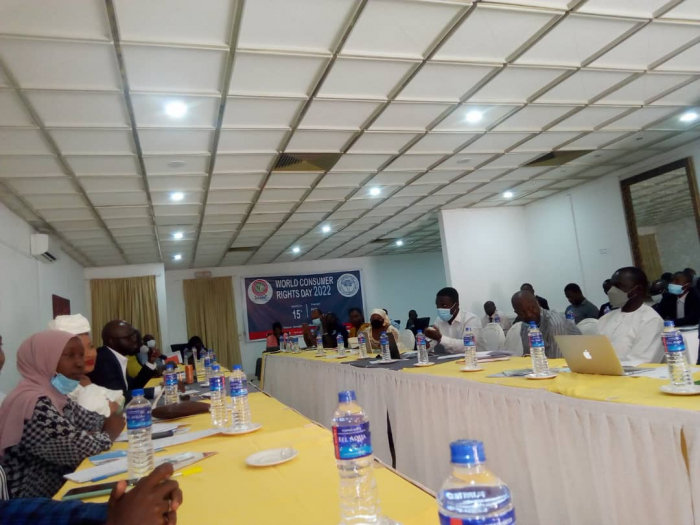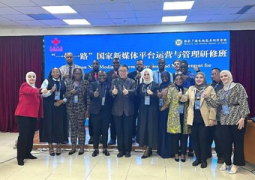
The commemoration of the event was held at the local hotel in Kololi on Tuesday and attended by stakeholders and members of Civil Society Organisations (CSOs).
Abdou Colley, chairman of GCCPC said the day was meant to raise awareness on its importance and advocate for fair digital finance and highlight how they can harness opportunities of digital financial services while overcoming the dangers facing consumers.
Mr. Colley noted that they have developed a consumer protection guideline for the financial sector, currently being reviewed to adequately cater for digital financial products and services.
“It is hoped that once these guidelines are finalised, the Commission and Central Bank of The Gambia will coordinate implementation efforts to protect consumers,” he said.
According to him, the 2019 Global Fintech Adoption Index found that only 4 percent of consumers worldwide have not had some form of Fintech money transfer or payment service. “Digitalisation is the new norm and it is here to stay,” he stated.
Mr. Colley explained that consumer protection is an essential part of a safe and secure financial system, adding that, effective consumer protection laws and procedures can engender such trust, giving consumers the confidence to engage and transact.
However, he said consumers should first be able to understand the digital financial products and services and the choices they can make.
GCCPC chairman said the coming of the National Financial Inclusion Strategy (NFIS) championed by Central Bank of The Gambia will be adequately dealt with.
He noted that consumers need to be able to understand the products and services they are using, understand their rights and responsibilities and also be aware of redress mechanisms when their rights are infringed.
He said the rise of the digital economy has raised unique consumer protection issues and opportunities, saying, consumer protection is essential to digital finance because service providers often have greater knowledge, power or resources than consumers.
He indicated that consumers may face limitations in their ability from the traditional ways of doing business.





